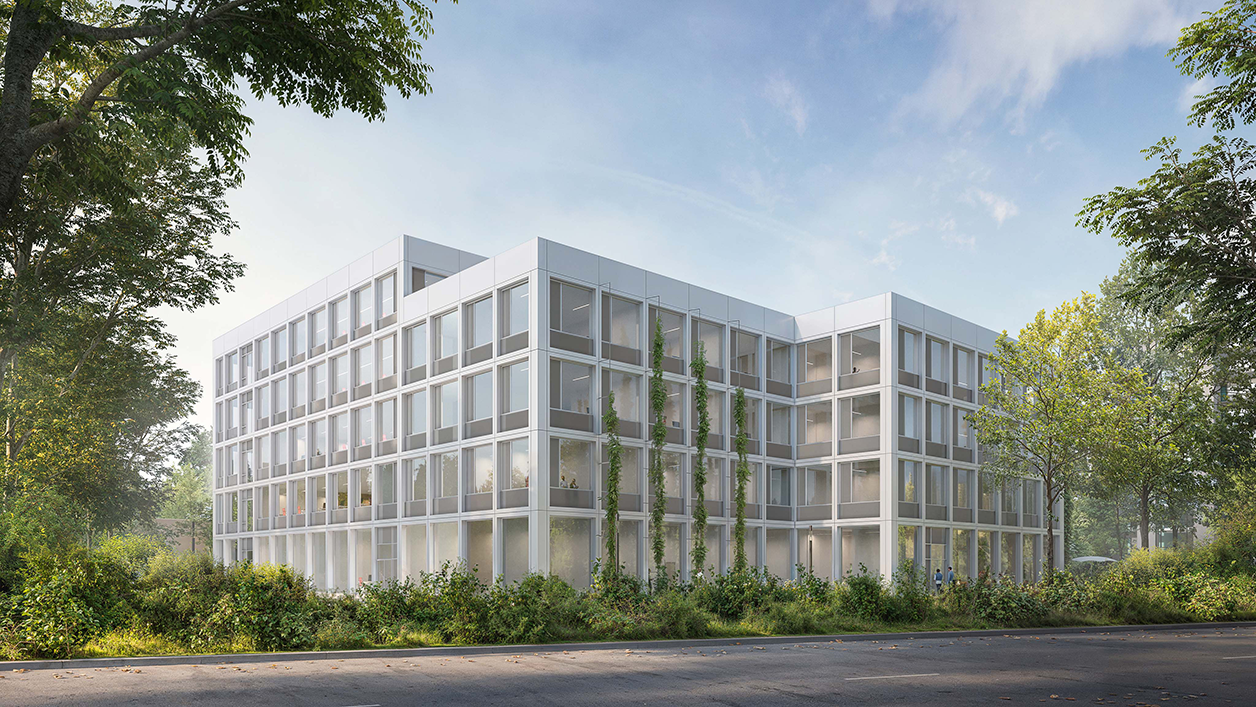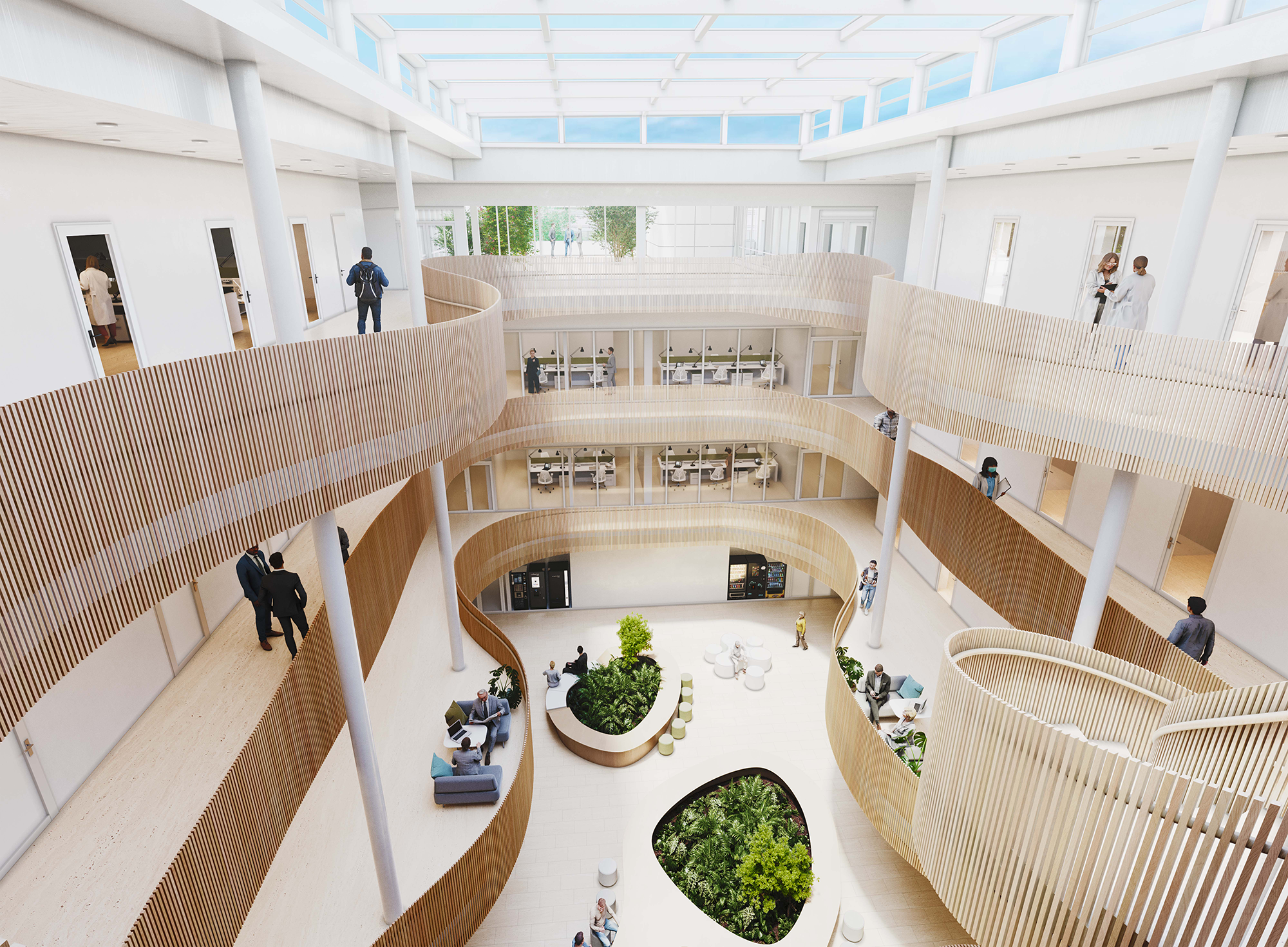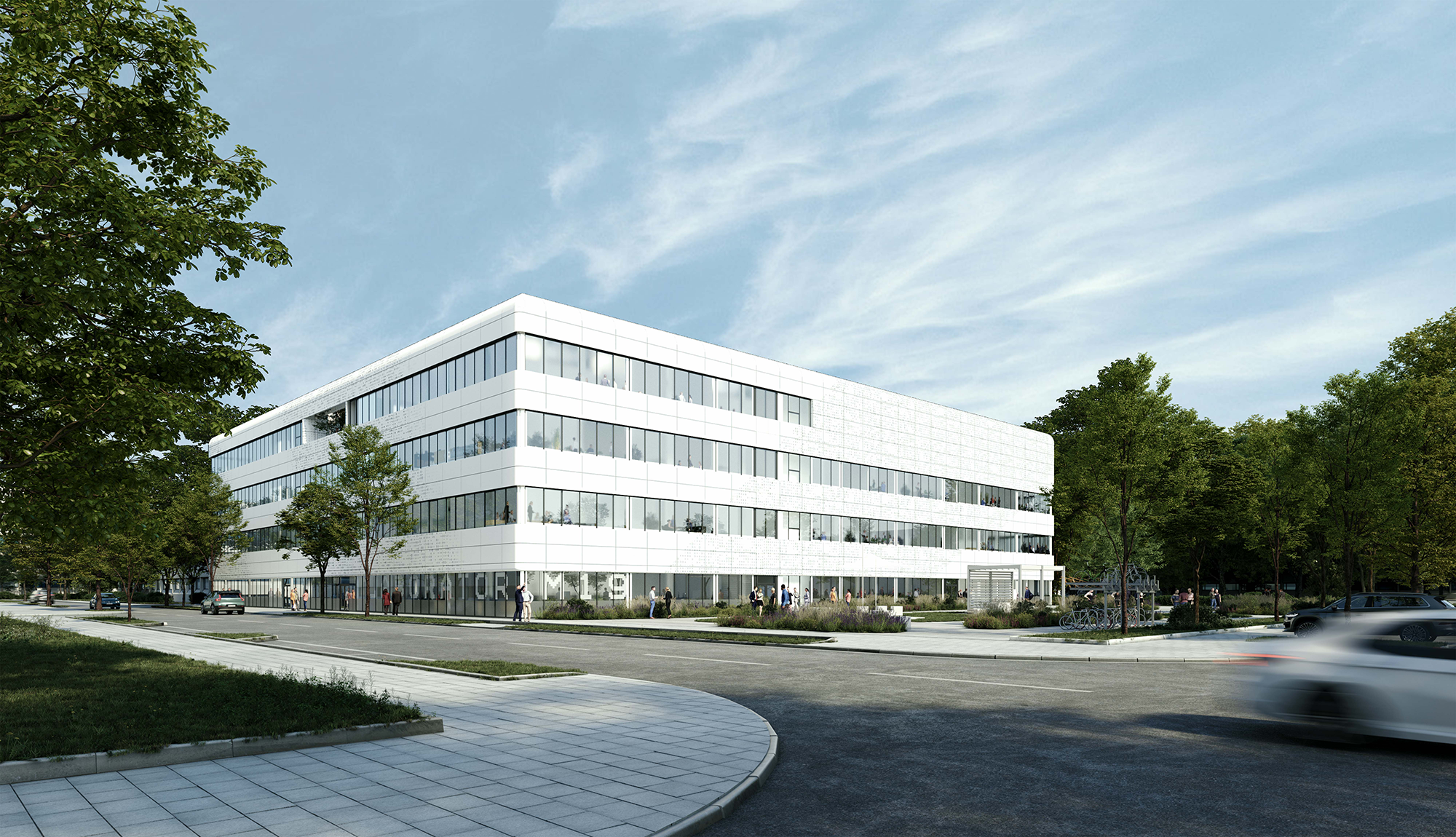The two building concepts outlined in a feasibility study Laborator and HubiTat comprise a gross floor area of around 34,000 m². The planned investment amount is around €100 million. After preparation of the design plan and on the basis of the associated specific budget, the City Council of Cologne will then decide on the construction of the buildings in a further resolution.


Thanks to the two-building concept, the heterogeneous space requirement can be ideally addressed. This is the result of the targeted technology mix, which, in addition to the central fields of life sciences and healthcare, also includes digital health, medical technology, pharmaceutical production and engineering. As a structural engineering center, the laboratory offers space in particular for biotechnological, genetic engineering, GMP/GLP and fermentatory applications. In addition, HubiTat creates representative and functional spaces for medtech and biotech, digital health, healthcare and also conference and catering offerings.
The enormous space reserves of the BCC (up to 180,000 m² of usable space) also enable the BCC to develop in the long term and thus to create a unique ecosystem for startups, scaleups and corporates. At the Cologne location, this concept consistently accompanies innovations to economic success and thus also has positive effects for the municipality and the Rhineland economic area.

BioCampus Cologne managing director André van Hall is impressed:
“The start of these new construction projects is exactly the impetus we currently need to activate the huge potential of the BCC and create new opportunities for growth in the Life Sciences community. ”
Andree Haack, head of economic affairs in Cologne and also part-time managing director of the BCC, underlines the visionary significance of this municipal decision:
“These construction projects represent the first step towards firmly establishing the BCC and the life sciences region of Cologne as one of the leading hotspots in Germany and further expanding its significance. ”